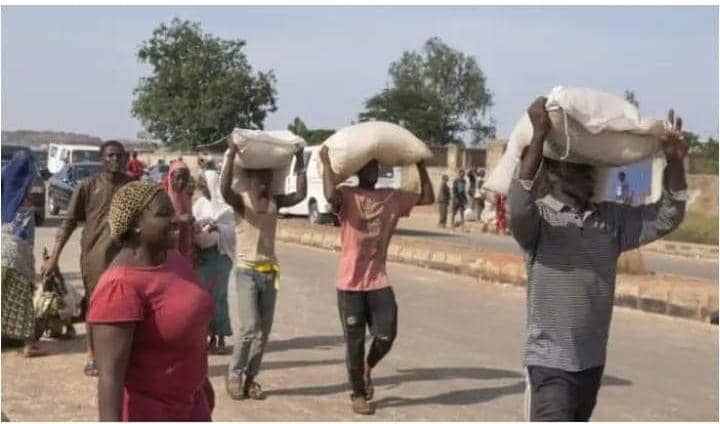Nigeria, the giant of Africa, is facing unprecedented economic hardship that has left millions of its citizens struggling to make ends meet. The confluence of various factors, including the global economic downturn, dwindling oil revenues, and the impact of the COVID-19 pandemic, has exacerbated an already challenging situation. In these trying times, it is imperative for both well-to-do individuals and the government to step up and extend a helping hand to those in need.
The economic challenges faced by Nigeria are multi-faceted. The nation’s heavy reliance on oil exports has made it susceptible to fluctuations in global oil prices. When oil prices plummeted, as they did during the COVID-19 pandemic, Nigeria’s revenue stream took a massive hit. This, coupled with longstanding issues like corruption and mismanagement of resources, has led to a dire economic situation.
Unemployment rates are soaring, and inflation is making it increasingly difficult for ordinary Nigerians to afford the bare necessities. Families are struggling to put food on the table, and access to healthcare and education is becoming more of a luxury than a right. The economic hardship has left vulnerable populations, such as widows, orphans, and the elderly, in dire straits.
At this critical juncture, well-to-do individuals in Nigeria have a moral obligation to extend their resources to help those in need. Philanthropic gestures from individuals and private sector entities can make a significant impact on alleviating suffering. This includes providing financial aid, donating food and essential supplies, and supporting local initiatives that aim to empower communities.
Furthermore, successful business leaders and entrepreneurs can create job opportunities through investments and expansion, thus contributing to reducing the alarming unemployment rates in the country. By doing so, they not only aid the needy but also strengthen the economy in the long run.
The Nigerian government bears a fundamental responsibility to address the economic hardships plaguing the nation. Comprehensive policies and strategies should be implemented to stimulate economic growth, reduce poverty, and create a more equitable society.
This may include investments in infrastructure development, diversification of the economy beyond oil, and the establishment of social safety nets to protect vulnerable citizens. Additionally, there must be a commitment to transparency and accountability to tackle corruption and mismanagement of public funds, which have long hindered progress.
The most effective response to Nigeria’s current economic hardship is a collaborative effort between well-to-do individuals and the government. The government should create an enabling environment for philanthropic activities, offering incentives to encourage private sector support for social causes.
Moreover, well-to-do individuals and philanthropic organisations can work alongside the government to identify areas of need and develop sustainable solutions. This synergy will maximise the impact of humanitarian gestures, creating a more resilient and prosperous society.
Nigeria is facing a severe economic crisis that demands urgent attention and action. Well-to-do individuals and the government must join forces to extend humanitarian gestures to the needy during this trying moment. This not only reflects the spirit of Ubuntu, “I am because we are,” but also lays the foundation for a more inclusive and prosperous Nigeria. Together, we can navigate these challenging times and build a brighter future for all citizens.
Usman Abdullahi Koli, ([email protected])

 Join Daily Trust WhatsApp Community For Quick Access To News and Happenings Around You.
Join Daily Trust WhatsApp Community For Quick Access To News and Happenings Around You.


